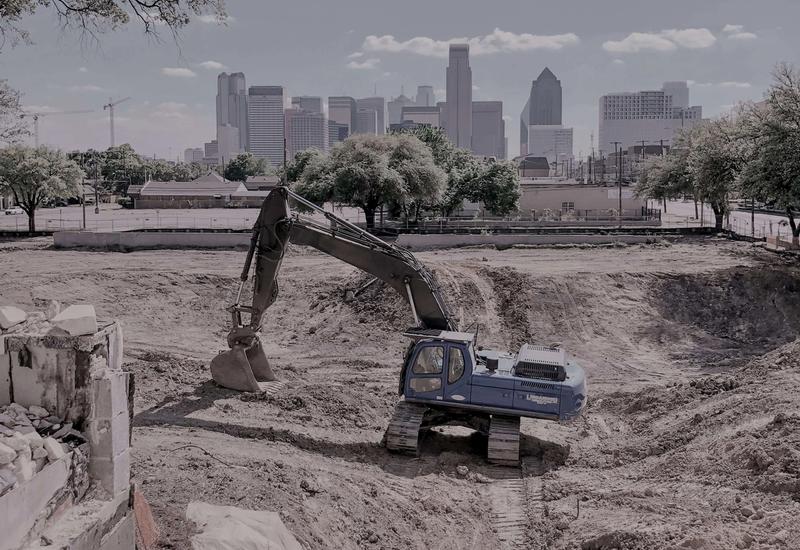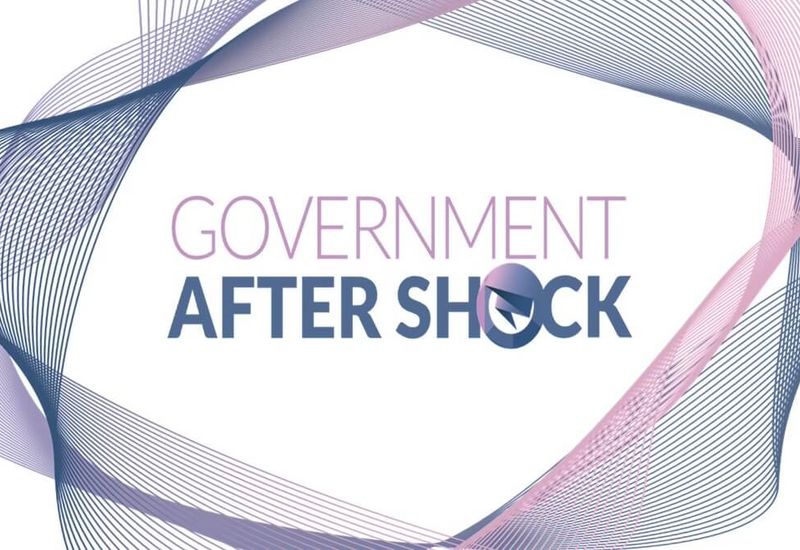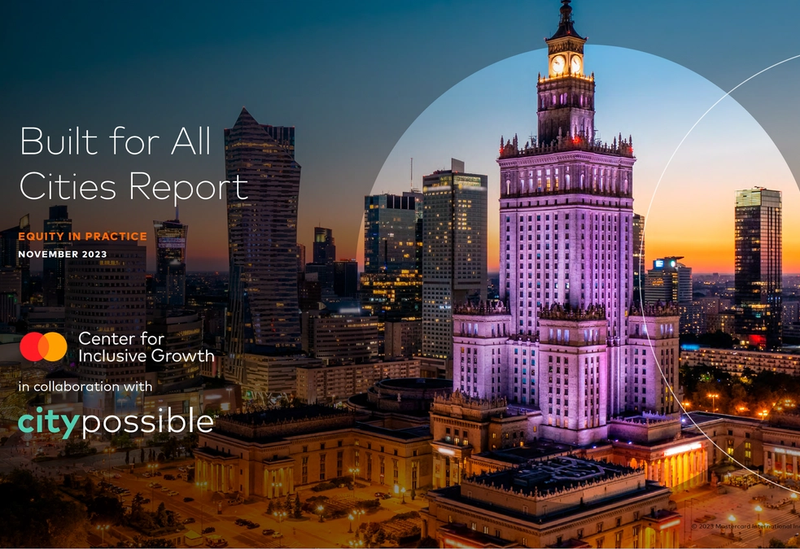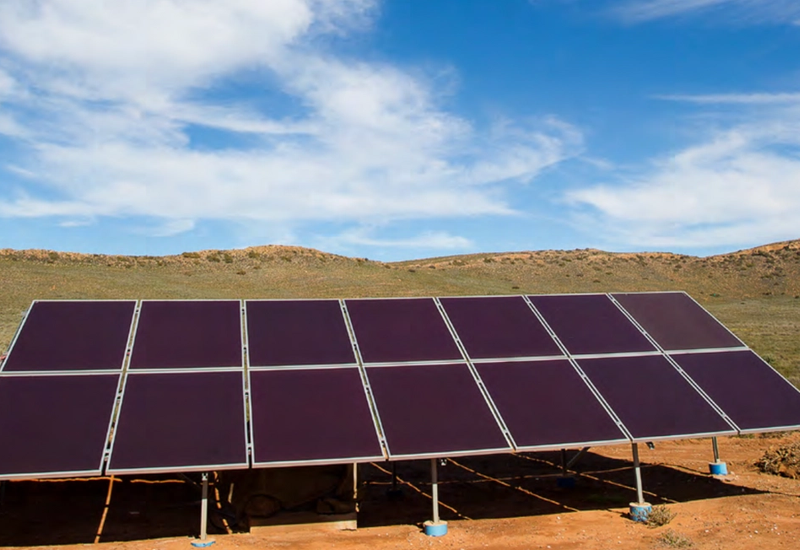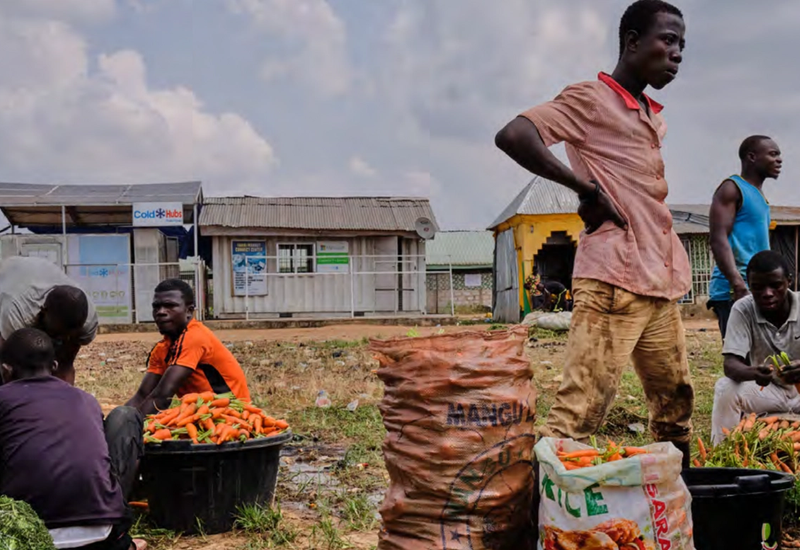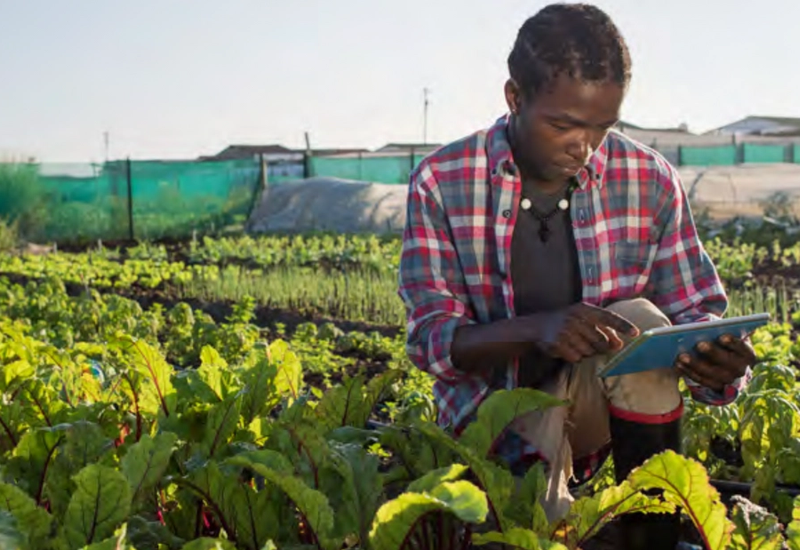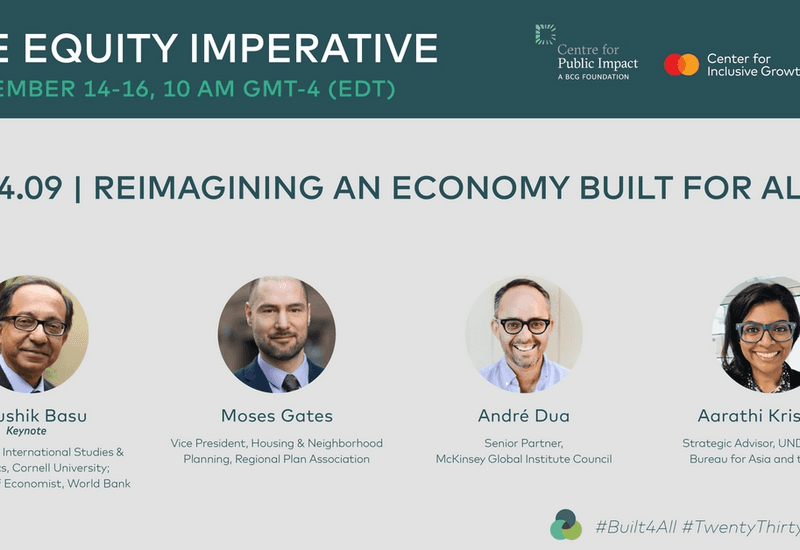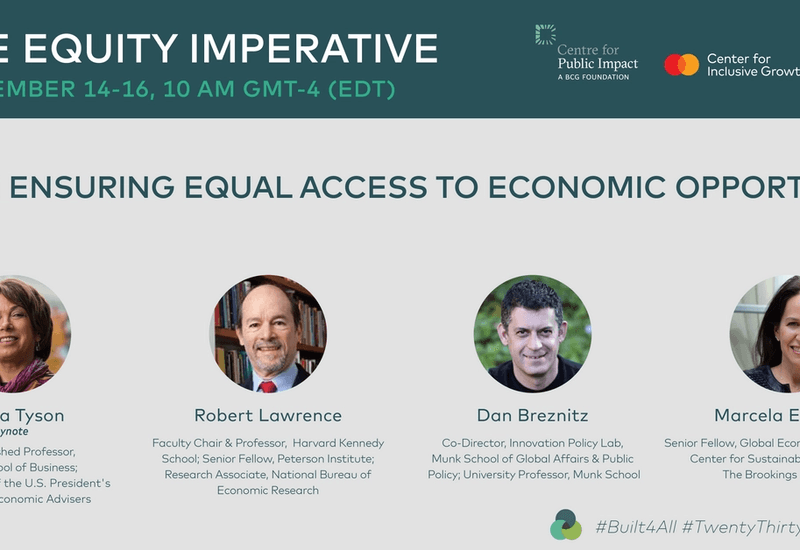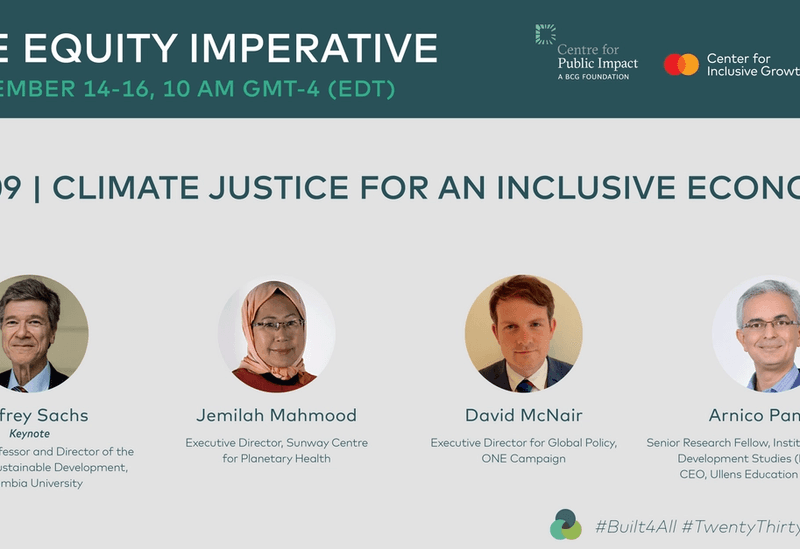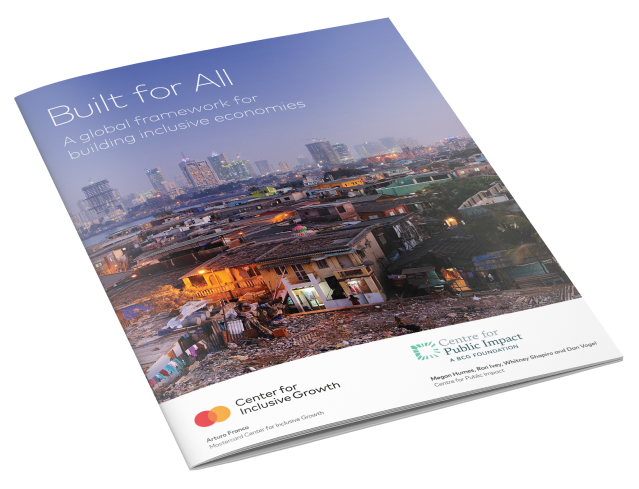

Built for All
A global framework for building inclusive economies
Our economic past
Over the last 75 years, a growing global economy enabled billions to lift themselves out of poverty. It fueled material prosperity and improvements in health, literacy, and nutrition. It contributed to rising living standards, significant advances in technology, and soaring innovation.
On average, the impact of this unprecedented economic transformation was positive for humanity. However, a deeper look shows that vast segments of the population have not shared in the ownership and the benefits of many decades of economic growth.
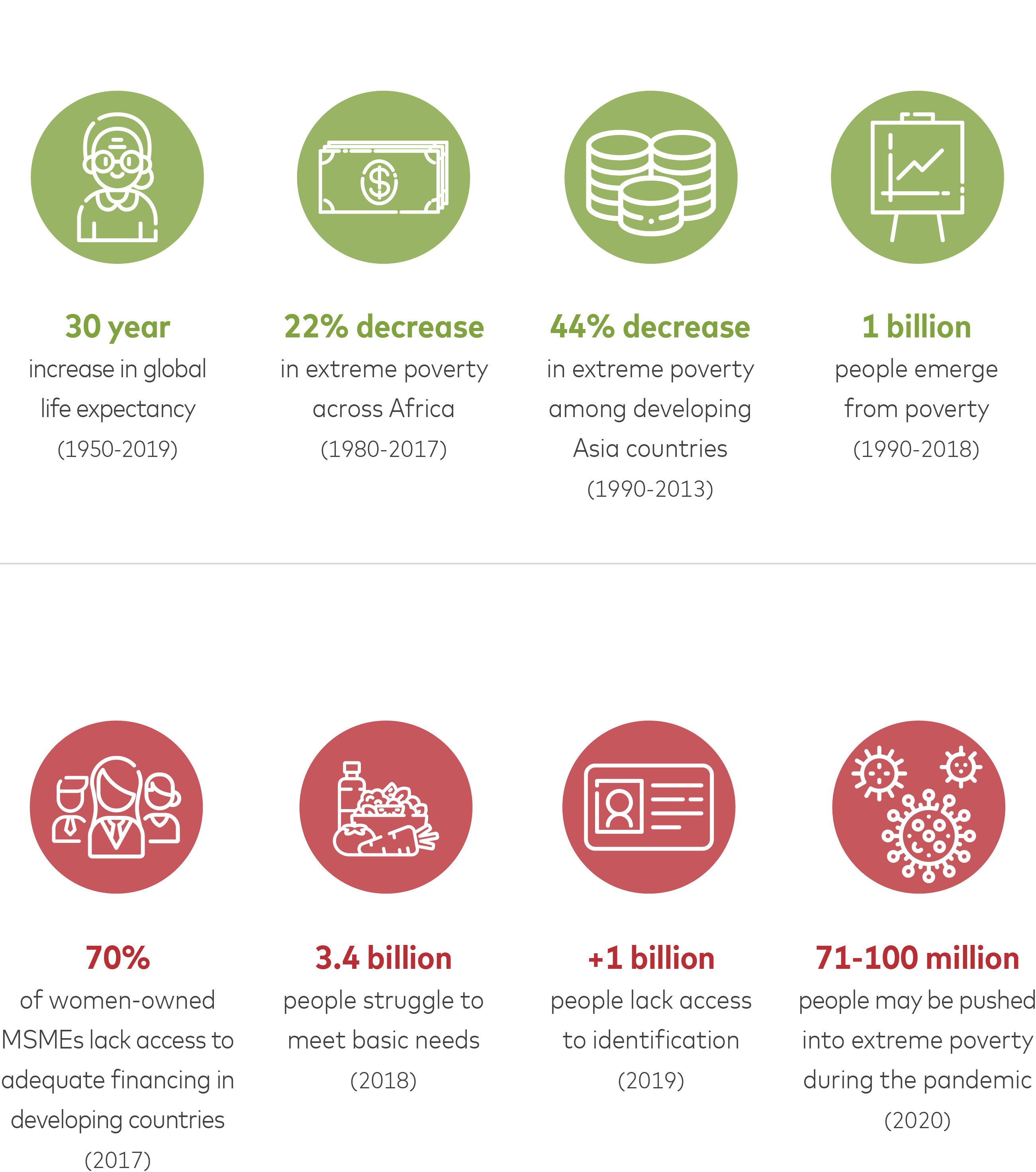

Amidst a global pandemic and resulting economic downturn, we are unequivocally exposed to vast differences in financial security, job fragility, and access to opportunities, both between and within nations. Now is the time to work together, across all sectors, in the urgent task of building a better, more inclusive world.

We asked the experts: how do we build a better economy?
Over the last six months, the Mastercard Center for Inclusive Growth and the Centre for Public Impact led a collaborative exercise to gather insights from Nobel laureates, heads of international organizations, and some of the world’s leading thinkers across sectors. We asked the experts: What is wrong with the economy? How can we fix it? And we summarized what we heard in Built for All. Insightful and lengthy conversations amongst the different contributors ultimately landed around a ‘north star’ as to what might constitute an inclusive economy.
Our expert panel identified four pressing systemic challenges that have perpetuated economic exclusion:

Structural forms of exclusion, based on personal characteristics, which unnecessarily limit economic potential.

A fractured social contract as the terms of worker participation in the economy—including wage growth, social benefits, and the availability of good jobs—have deteriorated.

Mounting wealth and opportunity gaps decrease the portion of society with an invested stake in the future success of the economy, creating more bystanders and fewer participants.

Lack of investment in shared resources and future generations creates a lack of resilience in essential sectors and unsustainable consumption of natural resources.

Designing an inclusive economy requires giving voice to individuals and places that have been insufficiently included up to now. It requires holding human decency at its core and investing in common goods and future generations.
As countries and industries rebuild, leaders around the world have an opportunity to reimagine how our economy operates.

Built for All draws from decades of past efforts, which recognize that the mounting imbalances in economic growth have ultimately resulted in an inequitable distribution of opportunity, income, and wealth. Our extensive literature review uncovered complementary perspectives from global development, business strategy, economics, and community engagement.
Redefining prosperity
A collective framework
Built for All was designed as an actionable framework for an inclusive global economy, which we define as a system that is intentionally designed to prioritize the flourishing of all people and the planet.
We envisage businesses, government, and civic sectors coming together and exploring a common set of actions that could help global economies support a future of sustained prosperity, equal participation, and responsible stewardship.
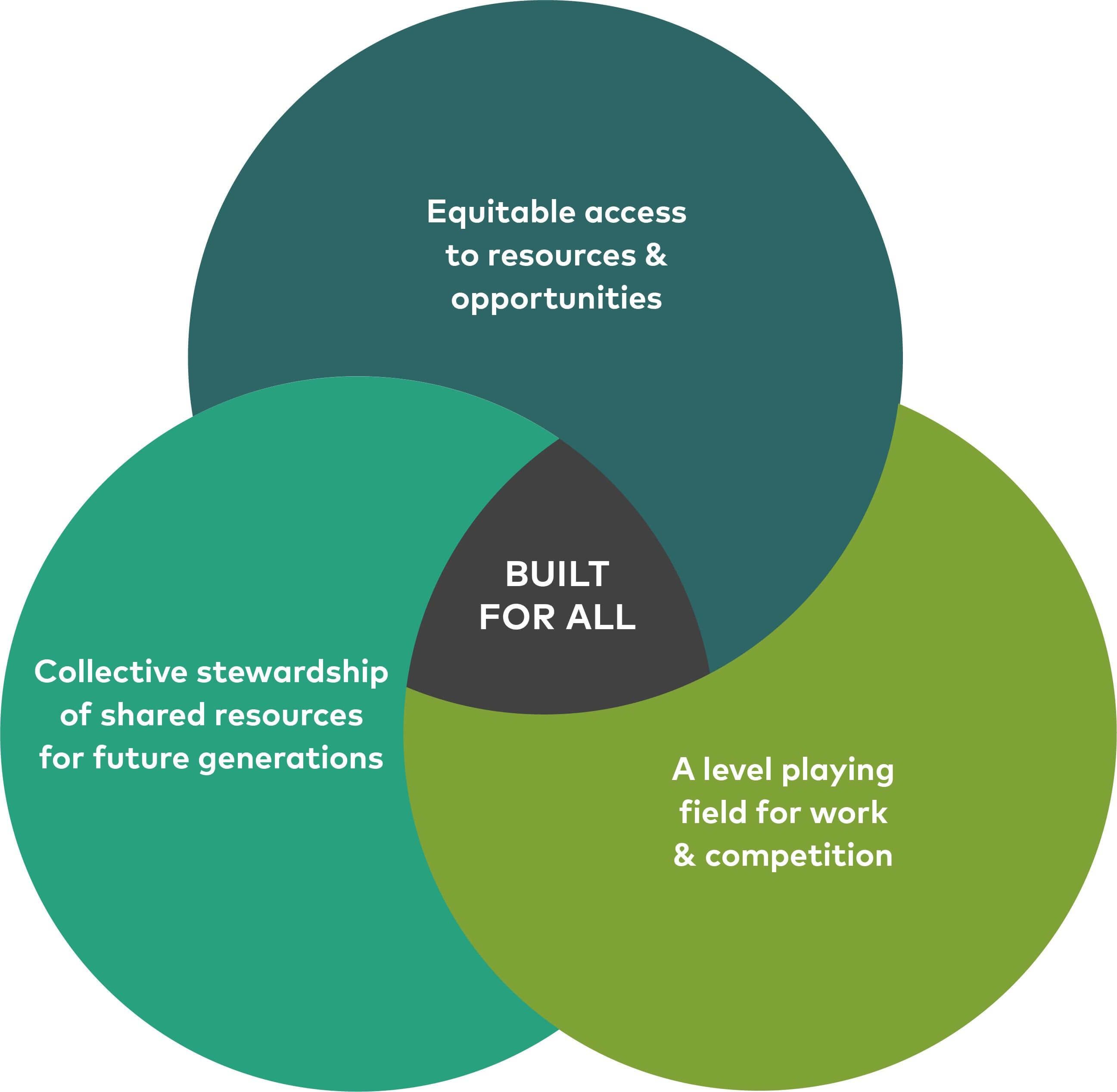

Success in today’s economy cannot be assessed using the mindset and measures of yesterday. In this framework, we take a broader view based on a proposition that economic growth, as historically measured, provides a necessary but insufficient measurement of improvement in human outcomes.
Building an economy for all
As we have seen throughout history, inclusion is not a given in any economy. Prioritizing inclusion requires intentionally structured markets and mission-driven decision making. To these ends, a society’s investments and economic policies can either be equitable, sustainable, and unifying, or they can be unfair, exploitative, and exclusionary. The latter can lead the economy to become unstable, unsustainable, and lead to social unrest.
We can, and must, build economies where everyone flourishes, pursues their personal destiny, and is fairly rewarded. Where human creativity, enterprise, and ingenuity create a better world for all.
Let us leverage this moment, dare to imagine new possibilities, and commit to bringing them to life.
Help build inclusive economies
We are eager to collaborate with public, private, and civic institutions to cultivate economies that support human flourishing.
To learn more about what your organization can do to help build inclusive economies, please download the full report and let us know if you would like to discuss opportunities to work directly with our teams.
Related Content & Upcoming Events
Click below to see case studies on the Built for All framework in action, upcoming events, and articles relevant to building inclusive economies.
This publication was made possible by the Mastercard Center for Inclusive Growth in partnership with the Centre for Public Impact

The Mastercard Center for Inclusive Growth advances equitable and sustainable economic growth and financial inclusion around the world. The Center leverages the company’s core assets and competencies, including data insights, expertise and technology, while administering the philanthropic Mastercard Impact Fund, to produce independent research, scale global programs and empower a community of thinkers, leaders and doers on the front lines of inclusive growth.
For more information and to receive its latest insights, follow the Center on Twitter, @CNTR4growth, LinkedIn and subscribe to its newsletter.

The Centre for Public Impact is a not-for-profit founded by Boston Consulting Group. Believing that governments can and want to do better for people, we work side-by-side with governments — and all those who help them — to reimagine government, and turn ideas into action, to bring about better outcomes for everyone. We champion public servants and other changemakers who are leading this charge and develop the tools and resources they need, like our Public Impact Fundamentals, so we can build the future of government together.
To receive the latest insights from the Centre for Public Impact follow CPI on Twitter, @CPI_Foundation, and subscribe to its newsletter.



